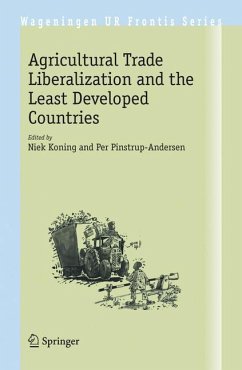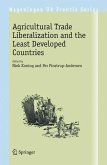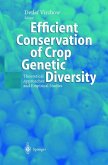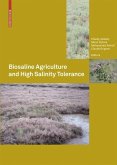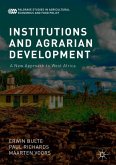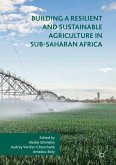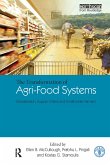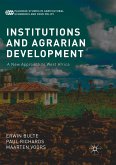Although the current round of international trade negotiations was called a 'Development Round', very little was accomplished before the negotiations stalled in mid-2006. Developing countries as a group stand to gain very substantially from trade reform in agricultural commodities. It is less clear how the 50 countries identified by the United Nations as the 'Least Developed Countries' (LDCs), which have been subject to special consideration in international trade negotiations, would fare. Would they lose their preferential trade access to the OECD markets and, if so, would these losses exceed the potential gains from liberalized trade? Or would low-income countries that currently receive high prices for commodities such as sugar in some OECD-country markets be out-competed by countries such as Brazil in a liberalized market? More generally, would any benefits from liberalized agricultural trade be captured by middle-income countries with good domestic infrastructure and well-functioning markets, leaving few or no economic benefits to the LDCs? How should the LDCs prepare for multilateral reform of agricultural trade, and should they take policy action now in response to the continuation of the trade-distorting agricultural policies pursued by the OECD countries? To what extent do the LDCs and the middle-income developing countries have common interests with respect to the desired outcomes of the trade round? Are the LDCs well represented by the Group of 21, which consists primarily of middle-income countries with strong export potential in agriculture, or should they pursue a different set of goals in future negotiations? In this book, several experts on international trade and development address these and related questions.
Hinweis: Dieser Artikel kann nur an eine deutsche Lieferadresse ausgeliefert werden.
Hinweis: Dieser Artikel kann nur an eine deutsche Lieferadresse ausgeliefert werden.
From the reviews:
"Book correctly identify much of the debate about agricultural trade reform as a dialogue of the deaf. Their response-of commissioning a set of studies and promoting dialogue between respected participants from both sides of the debate and seeking a consensus-has much to commend it. The volume offers many important insights. ... well worth reading for scholars interested in the implications of the Doha agenda for the least-developed countries. Much of the book is tightly argued and presents interesting and important analysis." (William Martin, Economic Development and Cultural Change, Vol. 58 (4), 2010)
"Offers a wide-ranging and detailed examination of the issue of agricultural trade liberalisation and its likely impact on least developed countries (LDCs). The book's content laudably covers a broad range of themes, including analysis of 'pro-poor' agricultural reform ... . welcomed by those already familiar with the debates as to agricultural liberalisation and the LDCs ... . offers insightful analysis of the potential strategies that could be pursued in order to make trade work better for the developing countries currently marginalised in global agricultural markets." (Mark Langan, Journal of Modern African Studies, Vol. 47 (2), 2009)
"Book correctly identify much of the debate about agricultural trade reform as a dialogue of the deaf. Their response-of commissioning a set of studies and promoting dialogue between respected participants from both sides of the debate and seeking a consensus-has much to commend it. The volume offers many important insights. ... well worth reading for scholars interested in the implications of the Doha agenda for the least-developed countries. Much of the book is tightly argued and presents interesting and important analysis." (William Martin, Economic Development and Cultural Change, Vol. 58 (4), 2010)
"Offers a wide-ranging and detailed examination of the issue of agricultural trade liberalisation and its likely impact on least developed countries (LDCs). The book's content laudably covers a broad range of themes, including analysis of 'pro-poor' agricultural reform ... . welcomed by those already familiar with the debates as to agricultural liberalisation and the LDCs ... . offers insightful analysis of the potential strategies that could be pursued in order to make trade work better for the developing countries currently marginalised in global agricultural markets." (Mark Langan, Journal of Modern African Studies, Vol. 47 (2), 2009)

